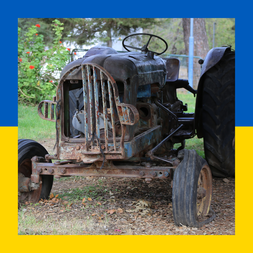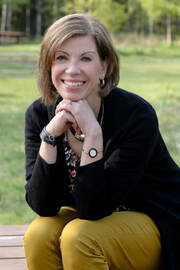
During the eulogy, Reba J, one of Papa’s two daughters, told many stories about her precious father. She brought his memory alive as she described how he knew everyone in the stores where he most enjoyed shopping, how he liked to be called Johnny Cash because he only used cash, how as a first-generation immigrant to Canada he proudly worked to support his family and how, whenever anyone was in need, he would immediately drop what he was doing and go to their aid. When asked why he would do this he would simply reply, ‘You gotta help people’.
What a philosophy for life.
After the service, later in the day, I reflected on my own upbringing. I don’t remember ever hearing the words, ‘You gotta help people’, but I did see them in action, daily. We lived on a farm and in the summer months it was ‘all hands, on deck’. My brothers had a market gardening business, taking fresh vegetables to three different outdoor markets each week. All of us worked in the fields planting, weeding, and picking that beautiful produce.
We had a neighbour, Mr. Dwyer, from whom Dad rented extra farmland, the back field, for us to use for growing the vegetables. When we talked about working ‘down in the back’, we all knew that meant we’d be spending the day on this rented land. We also knew it meant we might have a visit from Mr. Dwyer. The sound of his tractor always arrived before he did. He had an ancient, sputtery tractor that he’d coax up the rocky hill as he came to visit us while we worked. When one of us would hear that tractor, they’d sound the warning. ‘Here comes Mr. Dwyer’. We were afraid of him.
His wild looks were like something out of a movie; hair unwashed and in need of a cut, old dirty jeans often held up by a long belt but sometimes by bailer twine, and worn-out boots, the kind you picture on a soldier. That alone should have been enough to frighten us. But then he’d hop off his tractor, come right up to us and start to tell us his ‘stories’. Stories of how he’d get into bar fights, and ‘get ‘em in a headlock’. He’d demonstrate using one arm to show how he’d hold someone and then hold up two fingers from the other hand as if he was going to poke his victim in the eyes. Sure enough, he'd tell us with his loud, raspy voice, ‘I’d poke ‘im in the eye!’
We were terrified (and fascinated) and we knew we were always to be respectful. We also knew we were supposed to be working, but Mr. Dwyer commanded our attention and we trusted Dad would understand. Dad reassured us Mr. Dwyer wouldn’t hurt us. As kids, although we fully understood his behaviour was not necessarily in his control, we didn’t have the vocabulary to accurately describe it. As adults we understood that he must have been suffering greatly from mental illness.
Every time there was a special occasion, like Christmas or Thanksgiving, we had a big beautiful healthy meal in our home. The table was filled with all our own vegetables, and most often there was home- raised meat, or fresh turkey from a neighbour, in the oven. On every special occasion, and on many regular Sundays, once our meal was fully prepared and ready to be served, Dad would ask for an extra plate. He’d fill it, heaping full. ‘I’ll be back in a few minutes’, he would say. I’ll just take this around to Mr. Dwyer. We would wait the fifteen or so minutes this little trip would take, then sit down to eat together.
Dad never made a big deal about his trips to Mr. Dwyers house. Sometimes he'd fill us in on what he had seen; newspapers and other old junk piled high to the ceiling, with only a pathway to the table. We knew Mr. Dwyer didn’t wash his plate, but just put in the fridge until the next meal when he would use it again. We were enthralled with these tidbits of insight. I suspect Dad spared us from many of the other things he saw.
We knew Dad did other kindnesses for Mr. Dwyer too. He always had time to help him with machinery and in his old barn, and he spent hours and hours listening to Mr. Dwyers’ stories. He often took packages, gifts, over there that we never asked about. Dad didn’t like to make a big deal about what he did. Mr. Dwyer thought Dad was a saint. St. Murray, he called him. But saint or not, those times spent with Mr. Dwyer couldn’t have been easy for Dad. Mr. Dwyer was a challenging man. Most of the neighbours steered clear of him and encouraged Dad to do the same. And yet, Dad happily carried on his rituals of helping his neighbour for as long as Mr. Dwyer lived. If we’d asked my dad why he did it, Dad would have raised his shoulders and held his hands out, palms up, with a little smile on his face and a hint of a tear in his eyes.
‘You gotta help people’, he might have said.
This week we are witnessing atrocities in Ukraine, unlike anything any of us could have envisioned. The people of Ukraine are modeling bravery and showing both strength and love as they do what they must to protect themselves and their country. Much of the rest of the world, despite the complexities of politics that seem to muddy all waters of common sense, are sending help in whatever form they can. The rest of us, feeling powerless and heartbroken, don’t have a clear vision for how we might help. We can’t provide food or shelter or refuge. I’ve heard about a local store, Calgary’s European Deli and Produce Market, who are donating half of their Saturday sales to the relief effort. I don’t really need anything from this store, but you can be sure I’ll be stopping by to donate money.
You gotta help people.
As the crisis in Ukraine unfolds, most of us will continue our lives with the most minimal disruption. And yet, around us, in our neighbourhoods, in our families, in our friends’ lives, in our workplaces, and at our dance studios, people will continue to face their own challenges. May we not spend too much time pondering what we might do, and rather simply put ourselves into some kind of action. After all, as Papa taught his girls, and as my father modeled for us,
You gotta help people.
My inquiry for you this week is, ‘Who needs my help?’
Elizabeth is a certified professional Leadership Coach, and the owner of Critchley Coaching. She is the founder and president of the Canadian charity, RDL Building Hope Society. She works with corporations, non-profits and the public sector, providing leadership coaching. She creates and facilitates custom workshops for all sizes of groups. She has expertise in facilitating Strategic Plans for organizations and for conducting leadership reviews. Contact Elizabeth to learn how helping others helps us all.


 RSS Feed
RSS Feed